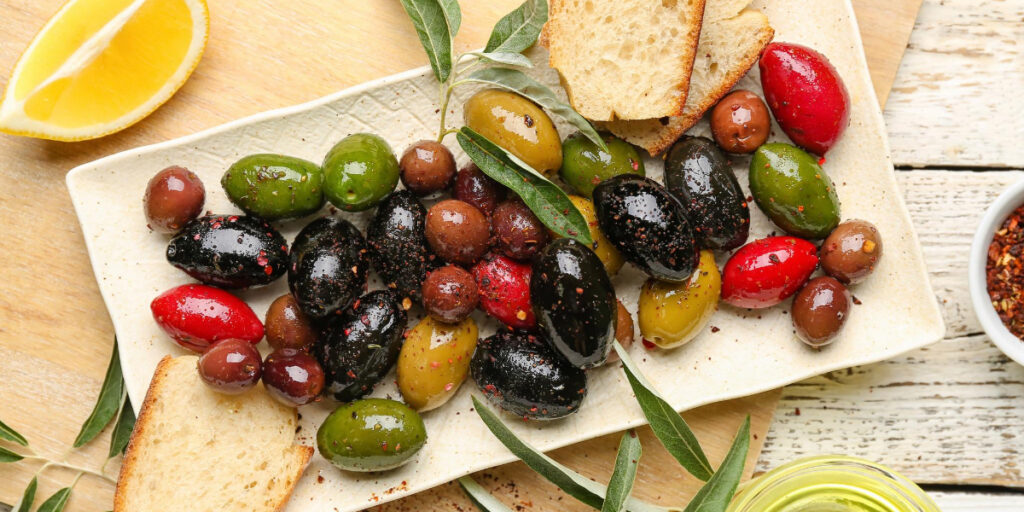13 Secrets to Boost Elderly Mental Well-Being With Diet and Exercise
Are you ready to discover effective ways to improve the mental well-being of your elderly loved one? This article will share 13 techniques that can positively impact their diet and exercise routine.
Adopting a Mediterranean diet and engaging in regular physical activity can enhance their cognitive function and overall mental health. Let’s embark on a journey towards a healthier and happier life together!
The Aging Brain and Mental Health
The aging brain goes through changes that can affect cognitive function and overall mental health. However, there are steps you can take to support your brain health.
One important factor is nutrition. A Mediterranean diet, which includes fruits, vegetables, whole grains, and lean proteins, can provide essential nutrients for the aging brain.
Another crucial aspect is regular exercise, which has been shown to promote brain health and improve cognitive function. Physical activities suitable for older people, such as walking, swimming, or yoga, can benefit significantly.
Practicing mindfulness and staying hydrated are also essential for maintaining brain health. Additionally, including dietary sources of omega-3 fatty acids, like fatty fish, can further support your mental well-being. On the other hand, it’s recommended to avoid processed foods and sugary drinks, as they can negatively impact mood and cognitive function.
Social engagement and maintaining a healthy weight through a well-balanced meal plan are also crucial for mental health.
Importance of Nutrition for Elders
The importance of nutrition for elderly individuals can’t be overstated. Prioritizing a balanced and nutrient-rich diet is crucial for enhancing mental well-being. Here are four key reasons why nutrition plays such a vital role in overall health:
- Hydration for optimal brain function: Proper hydration is essential for maintaining a sharp, focused mind. Water transports nutrients to your cells and flushes out toxins, promoting brain health.
Essential nutrients for brain protection: A diet rich in vitamins, minerals, and antioxidants can safeguard your brain from age-related decline and reduce the risk of cognitive impairment. Ample fruits, vegetables, whole grains, lean proteins, and healthy fats in your meals nourish your brain.
Mood regulation through nutrients: Omega-3 fatty acids and B vitamins support healthy brain chemistry, which can help stabilize mood and reduce the risk of depression and anxiety.
Energy levels for active engagement: Nutrient-dense foods provide the energy your body needs to stay active and engaged. A well-balanced diet improves stamina, enabling participation in physical activities that further promote mental well-being.
Critical Nutrients for Cognitive Function
Include a variety of essential nutrients in your diet to optimize cognitive function as you age. Certain nutrients have been found to support brain health and memory improvement.
Omega-3 fatty acids, which are found in fish, flaxseeds, and walnuts, are critical for cognitive function. They help reduce inflammation and promote healthy brain function.
Another nutrient that plays a role in memory improvement is vitamin E, found in nuts, seeds, and leafy greens. Vitamin E acts as an antioxidant, protecting the brain from oxidative stress.
B vitamins like B6, B12, and folic acid are crucial for maintaining cognitive function. Including whole grains, legumes, and leafy greens can ensure you get enough essential nutrients for optimal brain health.

Benefits of a Mediterranean Diet
One effective way to support brain health and optimize cognitive function as you age is by following a Mediterranean diet, which has been proven to offer numerous benefits. Let’s explore four advantages of incorporating a Mediterranean diet into your lifestyle:
Improved brain health: The Mediterranean diet is abundant in antioxidants, healthy fats, and essential vitamins crucial in promoting brain health and safeguarding against cognitive decline.
Reduced risk of Alzheimer’s disease: Research indicates that adhering to a Mediterranean diet can potentially decrease the risk of developing Alzheimer’s disease by up to 40%.
Enhanced memory and cognitive abilities: The nutrients present in the Mediterranean diet, such as omega-3 fatty acids and B vitamins, have been associated with improved memory and cognitive function.
Lowered risk of depression: Studies have demonstrated that following a Mediterranean diet can help reduce the risk of depression and enhance overall mental well-being.
Exercise and Brain Health in Aging
Regular physical activity has been proven to have numerous benefits for the aging brain. Engaging in exercise can improve memory and cognitive function while reducing the risk of cognitive decline. When you exercise, your brain receives increased blood flow and oxygen, promoting the growth of new neurons and strengthening existing connections. This leads to improved memory and overall brain health.
Additionally, exercise stimulates the release of chemicals in the brain that enhance mood and reduce stress, further supporting cognitive function. Whether it’s a brisk walk, a yoga class, or a bike ride, incorporating regular exercise into your routine can be a powerful tool for maintaining brain health and preventing cognitive decline as you age.
Types of Physical Activity for the Elderly
To maintain brain health and prevent cognitive decline as you age, it’s essential to incorporate various physical activities into your routine. Regular exercise not only improves your physical well-being but also positively impacts your mental health. Here are four types of physical activities that are particularly beneficial for older adults:
Chair exercises: These exercises are designed to be done while sitting, making them accessible for individuals with limited mobility. They help improve strength, flexibility, and balance.
Walking is a low-impact exercise that can be easily incorporated into your daily routine. It helps improve cardiovascular health, strengthens muscles, and enhances cognitive function.
Aquatic therapy: Water-based exercises are a gentle yet effective way to improve strength, flexibility, and cardiovascular fitness. The buoyancy of water reduces stress on joints, making it ideal for individuals with arthritis or joint pain.
Tai Chi: Tai Chi is a gentle exercise that combines slow, flowing movements with deep breathing. It helps improve balance, flexibility, and mental focus.
Incorporating Mindfulness in Daily Routine
Practicing deep breathing exercises is one way to start including mindfulness in your everyday life. These exercises can improve your mental well-being and help you reduce stress. Find a quiet and comfortable space where you can sit or lie down. Close your eyes and take slow, deep breaths, focusing solely on the sensation of the breath entering and leaving your body. Let your mind release any distractions and be fully present in the moment.
Another mindfulness technique you can try is a body scan. This involves bringing your attention to each body part and noticing any sensations or tension. This practice can help you become more aware of your body and any areas needing relaxation or attention.

Hydration and Mental Well-Being
Proper hydration is essential for maintaining your mental well-being as you age. It plays a crucial role in supporting cognitive function and preventing cognitive decline.
To prioritize hydration and boost your mental well-being, here are four practical tips:
Drink an adequate amount of water: Aim to drink at least eight glasses of water per day. Carry a water bottle with you throughout the day to stay hydrated.
Include hydrating foods in your diet: Incorporate fruits and vegetables with high water content, such as watermelon, cucumbers, and tomatoes. These foods not only provide hydration but also offer vital nutrients for brain health.
Limit your consumption of caffeine and alcohol. Caffeine and alcohol can dehydrate your body, so it’s important to moderate your intake. Consider refreshing alternatives such as herbal teas or infused water.
Remember to stay hydrated: It’s easy to forget to drink water, especially when you are on a break. When you are on a break. Set reminders on your phone or establish specific times throughout the day to ensure you stay hydrated.
The Role of Omega-3 Fatty Acids
Omega-3 fatty acids are essential for maintaining brain health, especially in elderly individuals. Including omega-3 in their diet can have numerous benefits for their mental well-being.
To ensure an adequate intake, it’s recommended to encourage them to consume foods rich in omega-3, such as fatty fish like salmon or mackerel, walnuts, chia seeds, and flaxseeds. These sources of omega-3 can contribute to overall brain health and support cognitive function.
Omega-3 and Brain Health
Incorporating omega-3 fatty acids into your diet can positively impact brain health in older adults. As we age, it’s natural to be concerned about maintaining cognitive function and brain health. Luckily, research has shown that omega-3 fatty acids support brain health.
Here are four ways omega-3s can benefit your brain:
Enhancing cognitive function: Omega-3s have been linked to improved cognitive function, including memory and problem-solving skills.
Reducing inflammation: Omega-3s possess anti-inflammatory properties, which can help decrease inflammation in the brain and protect against neurodegenerative diseases.
Supporting brain structure: These fatty acids are essential for the structure and integrity of brain cells, promoting optimal brain function.
Boosting mood and mental well-being: Omega-3s have also been shown to have a positive impact on mood and mental health, potentially reducing the risk of depression and anxiety.
To incorporate more omega-3s into your diet, you can consume foods rich in these fatty acids, such as fatty fish, walnuts, and flaxseeds. Doing so can support your brain health and maintain cognitive function as you age.
Benefits for Elderly
Understanding the benefits of omega-3 fatty acids for older adults is essential to supporting brain health and maintaining cognitive function as you age.
Omega-3s are crucial in reducing the risk of cognitive decline and improving overall mental well-being. These essential fatty acids enhance memory, attention, and problem-solving skills. They also help reduce inflammation in the brain, which can contribute to age-related cognitive decline.
Adding omega-3-rich foods, such as salmon, walnuts, and flaxseeds, can ensure you get enough of these beneficial nutrients.
Additionally, combining omega-3s with regular exercise provides even more significant benefits. Exercise promotes healthy blood flow to the brain and stimulates the release of mood-enhancing chemicals.
Staying socially active and engaging in meaningful interactions also support cognitive function and overall mental well-being.
Best Dietary Sources
Include foods rich in omega-3 fatty acids to ensure you have a good source of these essential nutrients. Omega-3 fatty acids are crucial in maintaining optimal brain health and function, especially as we age.
Here are four excellent sources of omega-3 fatty acids that you can easily incorporate into your daily meals:
Fatty fish: Salmon, mackerel, and sardines are all rich in omega-3 fatty acids. Aim to consume at least two servings of fatty fish per week to meet your omega-3 needs.
Flaxseeds: These tiny seeds are packed with omega-3s. To boost these essential fatty acids, you can sprinkle ground flaxseeds on your cereal, yogurt, or salads.
Chia seeds: Similar to flaxseeds, chia seeds are also high in omega-3s and can be added to smoothies, baked goods, or even used as an egg substitute in recipes.
Walnuts: A handful provides a good dose of omega-3 fatty acids. Snack on them or add them to your favourite dishes to reap their brain-boosting benefits.

Foods to Avoid for Optimal Mental Health
To optimize your mental health, it’s essential to be mindful of the foods that can negatively impact your mood. Certain foods, like processed snacks and sugary drinks, can contribute to feelings of anxiety and depression. By avoiding these detrimental foods and focusing on a balanced diet, you can support your overall well-being and improve your mental health.
It’s crucial to be aware of the impact of what we eat on our mental well-being. Processed snacks and sugary drinks can hurt our mood, leading to increased feelings of anxiety and depression. By prioritizing a balanced diet and avoiding these harmful foods, we can take proactive steps toward improving our mental health.
Harmful Mental Health Foods
Improving your mental well-being starts with making smart food choices. Here are five foods you should steer clear of to protect your mental health:
Sugary and Processed Foods: These foods might give you a quick energy boost but can hurt your mental well-being. Studies have linked high sugar intake to mood swings, irritability, and increased anxiety.
Trans Fats: Found in fried and processed foods, trans fats have been associated with a higher risk of depression and cognitive decline. Instead, opt for healthier fats like olive oil and avocados.
Alcohol: While a glass of wine may seem relaxing, excessive alcohol consumption can be detrimental to your mental health. Alcohol is a depressant that can worsen symptoms of anxiety and depression.
Caffeine: While a cup of coffee can give you a temporary energy boost, consuming too much caffeine can increase anxiety, restlessness, and difficulty sleeping. Limit your intake and consider choosing decaffeinated options.
Diet’s Impact on Mood
Improving your mental well-being starts with being mindful of how your diet affects your mood. The food you eat can significantly impact your health, and avoiding certain foods is essential for optimal well-being.
When it comes to diet and depression, paying attention to nutrition for mood is crucial. First and foremost, it’s best to limit or avoid processed foods and sugary snacks. These foods can cause blood sugar fluctuations, leading to mood swings and energy crashes. Additionally, consuming excessive amounts of caffeine can negatively affect your mood, so it’s wise to moderate your intake.
Furthermore, it’s recommended to reduce your alcohol consumption. While some people may turn to alcohol as a coping mechanism for stress or sadness, it can worsen symptoms of depression and anxiety.
Social Engagement and Cognitive Function
Engaging in meaningful social interactions can positively impact cognitive function. Maintaining social engagement becomes crucial for preventing cognitive decline and promoting mental well-being as you age. Research has shown that loneliness and social isolation can increase the risk of cognitive decline and various mental health issues.
Here are four ways in which meaningful social interactions can boost your cognitive function:
Intellectual Stimulation: Engaging in conversations and discussions with others can challenge your mind and keep it sharp. It encourages critical thinking, problem-solving, and the exchange of knowledge and ideas.
Emotional Support: Social connections provide emotional support, which can reduce stress and anxiety. Having someone to confide in and share feelings with can enhance your mental well-being.
Brain Activation: Participating in social activities such as group games or hobbies can activate different areas of your brain, thereby improving cognitive function and memory.
Sense of Belonging: Building solid social connections creates a sense of belonging and purpose, which positively impacts your mental health and cognitive abilities.
Strategies for Maintaining a Healthy Weight
Focus on portion control and regular physical activity to maintain a healthy weight. Losing excess weight can be a challenge, especially as we age. However, with the right approach, achieving and sustaining a healthy weight is possible.
One key aspect is managing portion sizes to control calorie intake. Pay attention to serving sizes and try using smaller plates and bowls to help control how much you eat.
Another crucial factor is engaging in regular physical activity. Find activities you enjoy, such as walking, swimming, or dancing, and aim for at least 150 minutes of moderate-intensity exercise each week.

Creating a Well-Balanced Meal Plan
Plan nutritious meals that include a variety of food groups to support your overall well-being. Here are four tips to help you create a balanced meal plan:
Start with a solid foundation: Include whole grains, such as brown rice or whole wheat bread, as the base of your meals. These provide essential nutrients and fibre to keep you feeling full and satisfied.
Fill up on fruits and vegetables: Aim to include a variety of colourful fruits and vegetables in your meals. They’re packed with vitamins, minerals, and antioxidants supporting brain health and
Don’t forget lean proteins: Incorporate lean protein sources, such as chicken, fish, beans, or tofu, into your meals. Protein is essential for muscle strength and repair.
Practice portion control: Be mindful of portion sizes
tomaintain a healthy weight. Use smaller plates and bowls, and listen to your body’s hunger and fullness cues.
Frequently Asked Questions
How Does Social Engagement Affect Cognitive Function in the Elderly?
Social engagement, such as staying connected with friends and participating in group activities, has a positive impact on cognitive function in older adults. It helps combat social isolation and loneliness, which can harm mental well-being. Seniors can maintain mental agility and improve their cognitive abilities by engaging in social interactions. This highlights the importance of fostering social connections and encouraging elderly individuals to participate in activities that promote social engagement.
What Are Some Strategies for Maintaining a Healthy Weight in Older Adults?
Maintaining a healthy weight as you get older is crucial. One effective strategy is to find enjoyable exercise routines and make them a regular part of your life. Staying active and moving your body not only helps with weight management but also contributes to overall well-being. Taking care of yourself should be a top priority at any age.
Can Mindfulness Practices Be Incorporated Into Daily Routines to Improve Mental Well-Being in the Elderly?
Incorporating mindfulness into your daily routine can positively impact your mental well-being. One way to do this is by practicing meditation or other mindfulness techniques. These practices can help enhance your overall mental health and bring a sense of calm and balance to your life. By taking the time to engage in these activities, you can find solace and improve your well-being.
What Are the Key Nutrients for Cognitive Function in the Elderly?
To improve your cognitive function, it is essential to provide your body with the necessary nutrients. These nutrients fuel your brain, helping it maintain sharpness and focus as you age.
Are There Any Specific Foods That Should Be Avoided for Optimal Mental Health in Older Adults?
Paying attention to the foods you consume is essential to maintain optimal mental health as you age. Some foods that should be avoided include processed foods, sugary snacks, and excessive alcohol. These items can have negative effects on your cognitive function. Additionally, incorporating regular physical exercise into your routine can greatly benefit your mental well-being. Remember, taking care of your mind and body is essential for overall health and happiness in your senior years.











